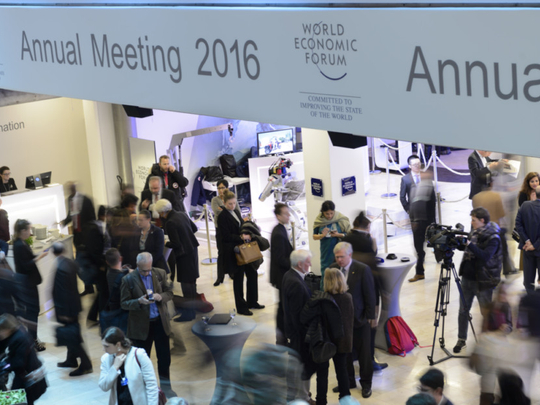
Highlighting the anxieties of the global business community with China’s slowdown, the Guardian wrote: “For any other country, an annual growth rate of 6.8 per cent would be exceptional: for China it was the weakest rate of expansion in 25 years. That threat is not lost on the global elite gathering in Davos, where the fear [was] that phase one of the global financial crisis was caused by the US housing market, phase two was caused by the Eurozone and phase three will now be a meltdown in China.” Focusing specifically on the Chinese problem vis-a-vis the world economy, the newspaper said in an editorial: “China’s growth rate may be only about half that suggested by official statistics which are so unreliable that even members of the politburo take them with a large pinch of salt.”
The Hindu, one of India’s oldest and most liberal dailies, concurred, observing that China’s stock-market turbulence and its economic slowdown were dominant themes in Davos. “As the four-day gathering wound down on Saturday, the jury was still out on whether China is headed for a hard landing or is in control of its transition. That China has come to dominate discussions is testimony to the extent to which its companies and manufacturing industry have integrated with the rest of the world,” the paper said in an editorial.
The other strand from the summit, in the newspaper, was Pope Francis’s admonition of the global political and economic elite to reflect on their own role in creating inequality. This was the same strand the Pulitzer-winning St Louis Post Dispatch picked on, tearing into what it called the hypocrisy and apathy of the world’s economic elite. “Every year, they show up in the chic ski resort town, challenging the Zurich air traffic control system with their private jets, to listen to earnest speeches during the day and network late into the night. If the world’s economic leaders were ever going to do something significant about the problems affecting the world’s poor and middle class, Davos might be where it started,” the newspaper said in an editorial. Instead, it said, “What happens in the Alps stays in the Alps ... Five years ago, Oxfam reported that the world’s 388 richest people owned as much wealth as the bottom half of the world’s population. In 2014, that number was down to 85 rich families. This year it’s 62. Meanwhile, back in Davos, participants were signing up for the ‘Refugee Simulation Experience’, where for an hour they’ll get to see what it’s like to live like a displaced person, albeit displaced to the basement of a Hilton hotel.”
The Christian Science Monitor focused on a different thread in an editorial: The emergence of Justin Trudeau as a global leader. “He has set an admirable tone about dealing with global challenges, which are currently creating an air of gloom. In fact, he was selected as the keynote speaker for the gathering of the World Economic Forum in Davos.”
Highlighting the Canadian Prime Minister’s role as a non-traditional leader, the paper said: “Those qualities were worth highlighting at Davos because of the meeting’s main focus: How to master the ‘fourth industrial revolution,’ or the effect of intelligent technology on society and business.





_resources1_16a31069e4e_small.jpg)






